Joe Dix murder: Parents left powerless after gang exploited son
- Published
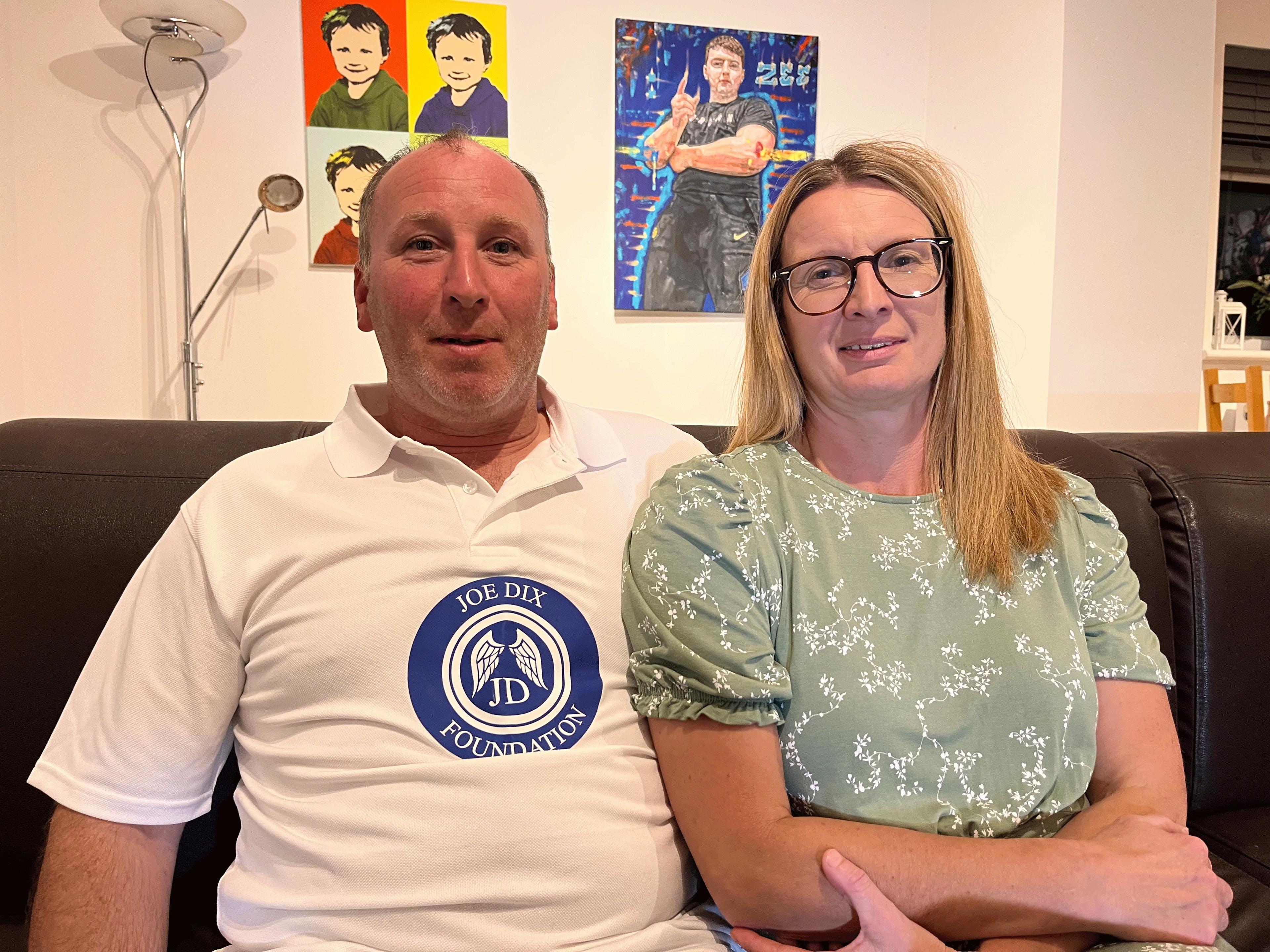
Phil and Emma Dix have set up a charity to help others whose family members are exploited by drugs gangs
The grieving parents of a murdered 18-year-old say their son was exploited by county lines drug dealers, leaving them powerless to help him.
Emma and Phil Dix's son, Joe, was stabbed seven times during the aftermath of a drugs and cash burglary in Norwich in January 2022.
Speaking to the BBC, they said their son had been trapped in a "vicious cycle" due to owing money to dealers.
Benjamin Gil, Cameron Palmer and Hans Beeharry, were jailed for life.
The trio were convicted in September and sentenced at Norwich Crown Court on Wednesday.
Gil and Palmer, both 19, were each jailed for a minimum of 21 years and Beeharry, 20, for a minimum of 20 years.
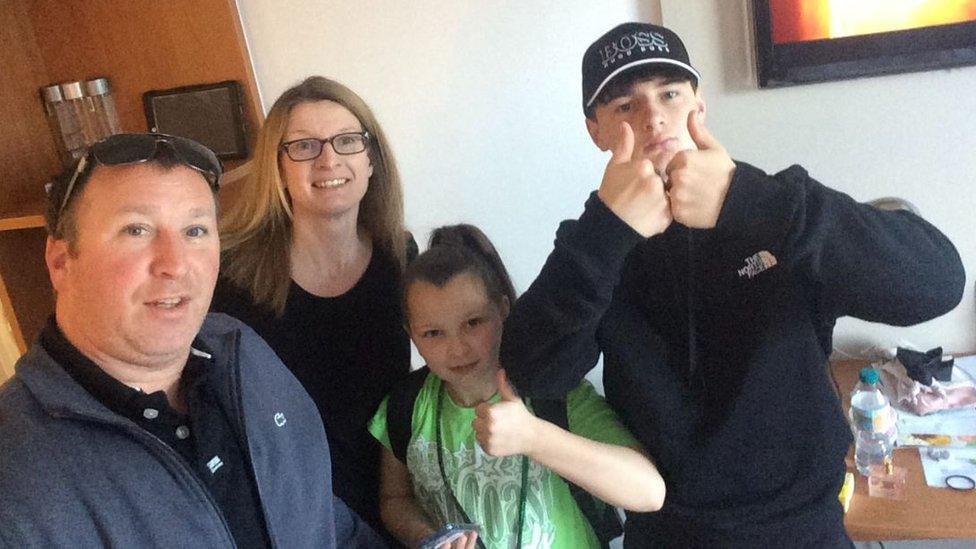
Joe Dix's parents say young people are lured in by county lines gangs due to the wealth that appears to be available
Mr Dix had gone to help a concerned friend at a known crack den in Vale Green, in the Mile Cross area of the city, before he was chased through a housing estate and stabbed seven times.
Speaking after the trial, his parents, of Norwich, said he had been lured into dealing drugs by the money.
He was arrested in 2020 and charged with supplying Class A drugs, leading him to finally "open up" to his parents about his double-life.
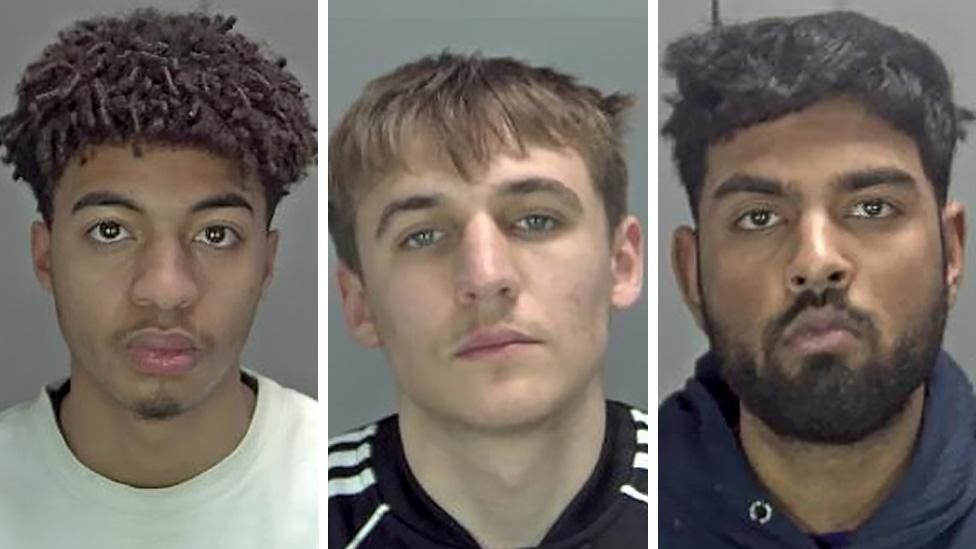
(Left to right) Benjamin Gil, Cameron Palmer and Hans Beeharry were given life sentences
Mrs Dix, 47, said: "Joe was a victim and that's how it all started.
"He said he was up the park one day and someone approached him to carry something for money, which is what he did. I don't think, with his teenage brain, he thought about it.
"It just stemmed from there. He would say he got mugged. They would take the money off him, take the drugs from him and it would be set up from whoever had given him the drugs... so he was in debt and had to work harder to pay the debt off. It was just a vicious cycle."
Mrs Dix believes youngsters are lured in by county lines gangs due to the wealth that appears to be available.
County lines refers to drug operations run from urban bases that stretch out to more rural areas, using young and vulnerable people as couriers.
"They get sold the glamourous lifestyle of easy money, 'you can earn however much just by doing this, you can buy this, you can buy that'," Mrs Dix said.
"There were times when I sat in the garden with him and he was crying, saying I wouldn't understand what he's seen, what he's been through."
Sometimes her son would not return to the family home because he had been beaten up.
"Potentially, all of these kids are being exploited, even the ones that killed him. The law says that no child can consent to being exploited, so if they're getting used, that's wrong," Mrs Dix said.
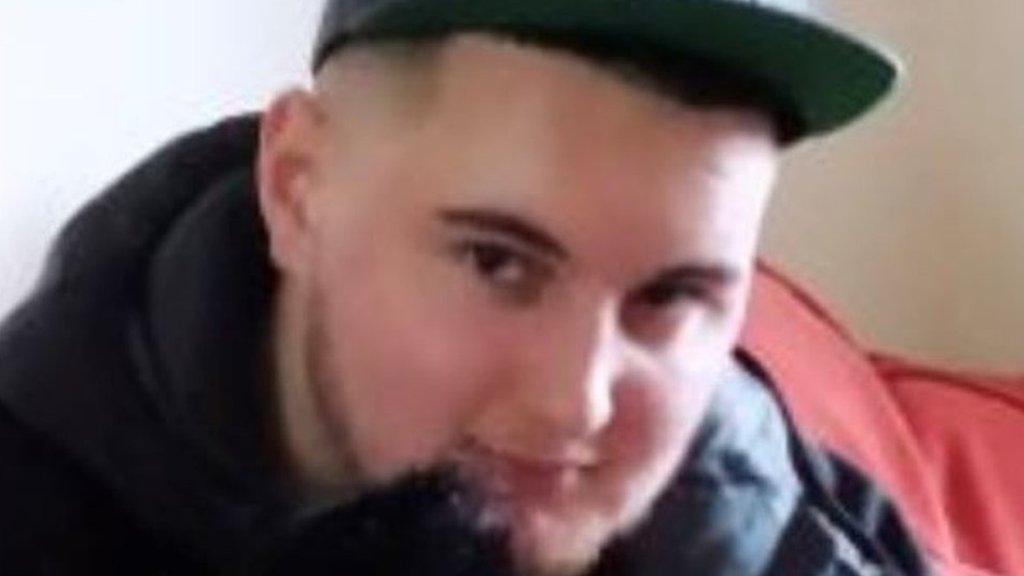
Joe Dix, 18, died of stab wounds at Vale Green, Norwich, following a chase
One thing Mr Dix and his parents had in common was living a double life.
As schoolboy he was supplying heroin and cocaine, while pretending to his parents he was a normal teenager.
His parents, meanwhile, were trying to control the situation by keeping it secret for fear of shame and being judged.
"People didn't judge us at all, because we didn't tell them what was going on. We led a double life.
"I didn't want people to think I'd had a bad day at work because something had gone on at home, so I just put a front on and pretended everything was fine.
"There were times when we both went to work in the morning and we'd had two or three hours sleep because we'd had the police round the night before. We didn't let on, we didn't tell anybody; we just tried to sort it out ourselves."
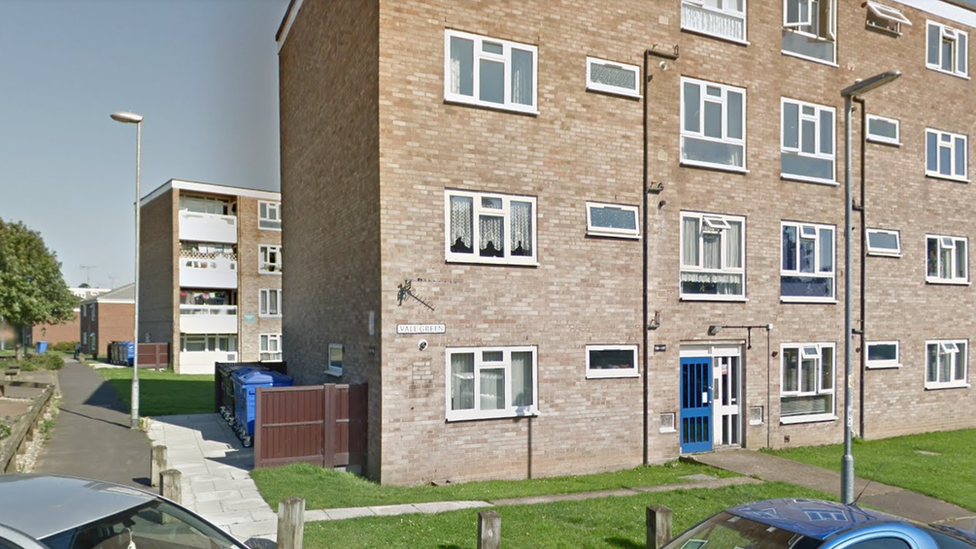
Mr Dix had gone to Vale Green, Norwich, after an associate called for help
The couple think more needs to be done to focus on tackling the issue of drug dealing in their home county.
"I think there's a huge issue in Norfolk. No-one seems to think there's a problem here, sleepy old Norfolk, the country folk, nothing happens here," Mrs Dix added.
"But it's happening all around us. If you actually look, you go in the city you can see people drug dealing, you can see people have got knives down their trousers. It's everywhere. Absolutely everywhere."
Convinced their experience was not unique they still felt "unable to speak out" and they could not find anyone who they felt would understand their situation.
Determined to change that, they set up a charity, the Joe Dix Foundation - a helpline but for support.
"Hopefully if someone wants to send a message we can just talk with them. If one parent picks up on the warning signs, it will be amazing," Mrs Dix added.
"We won't let Joe be forgotten. He's died for a reason and it feels fitting that we help people."
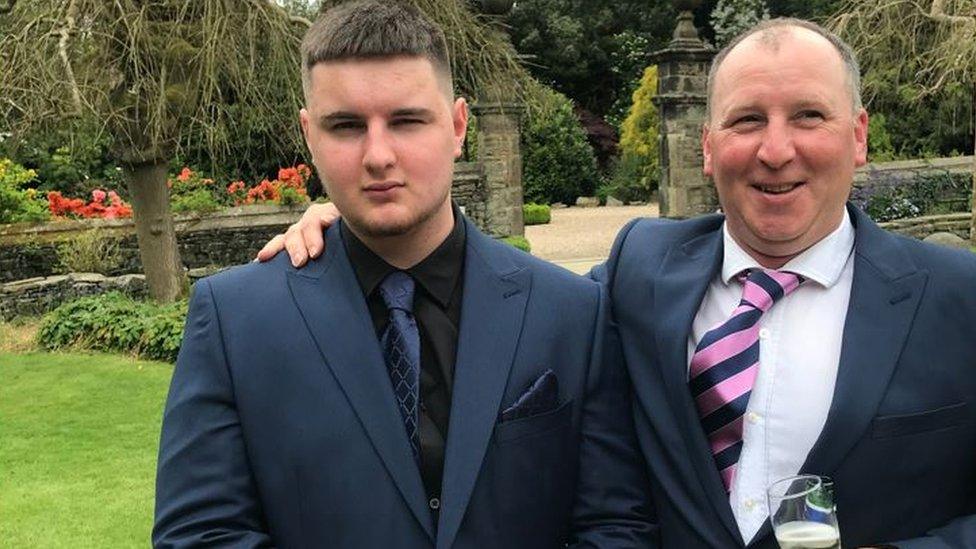
The parents of Joe Dix said they "led a double life" and "pretended everything was fine"
A police spokeswoman said: "Norfolk Constabulary will not tolerate the operation of county lines within our county.
"Our dedicated county lines team set up in April 2019 works with specialist officers from the Metropolitan Police to identify individuals who control the lines from London and uses in-depth phone data analysis to track down those 'line-holders' to stop the movement of drugs at the source.
"We know county lines drug dealing, and the exploitation and violence that comes with it, has a devastating impact on our communities.
"We continue to work hard to remove those who choose to bring drugs into our county and protect our local communities from the risk these individuals pose."
The spokeswoman added 74 lines bringing Class A drugs into the county had been "shut down" between April 2019 and April 2023.

Follow East of England news on Facebook, external, Instagram, external and X, external. Got a story? Email eastofenglandnews@bbc.co.uk, external or WhatsApp us on 0800 169 1830